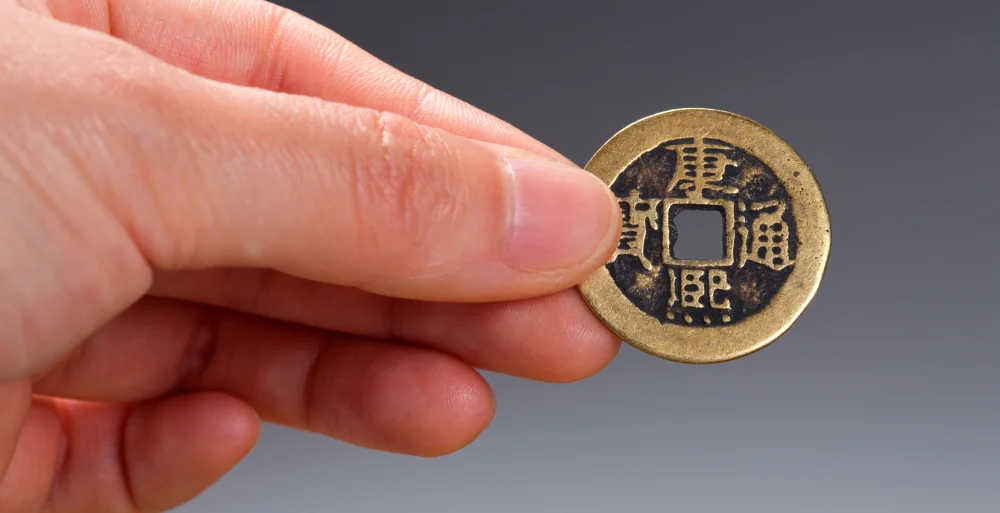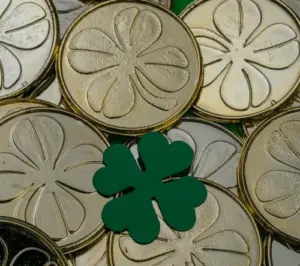
It starts with something small. A plastic bracelet. A pebble picked up on the way to the corner shop. A R2 coin rubbed between the fingers until the numbers on the scratch card are finally revealed. In South Africa’s ever-expanding world of casual betting, whether it’s a quick draw at the slots, a virtual spin from a rooftop bar in Sandton, or a lucky pick on an underground lotto app, belief is quietly being exchanged. But not in prayers or credit cards. In objects. In rituals. In things we carry because we hope they’ll carry us.
You won’t see these tokens on betting slips or advertised in sportsbook promotions. They live in pockets, keychains, phone cases, or the backs of wardrobes. They’re not official currencies, but they hold serious emotional stock. And in a country where the line between daily struggle and fleeting fortune is razor-thin, these items aren’t just superstition, they’re survival tactics.
In taxi ranks, you’ll see men rubbing the same coin between thumb and forefinger before logging onto their betting app. In beauty salons, women tuck small charms into their purses or clip R5 notes to mirrors, not to spend but to summon something better. A sip from the same coffee mug before logging into a virtual bingo tournament. The insistence on wearing a red hoodie on days with high odds. These aren’t habits, they’re low-cost investments into an unregulated belief system.
And like any economy, there are trends. Gold is big. Not bullion or bars, but gold-colored phone covers, gold-laced wallets, even gold nails. The logic? If you mimic wealth, maybe wealth finds its way to you. Fake gold rings worn by sports bettors who say their “golden touch” only works when the ring is on. A woman in Bryanston has worn the same gold-toned perfume on every day she’s made over R500 in instant wins. When she ran out once, she swore her luck left with it.
Digital luck tokens are taking shape, too. People screenshot their “best win screen” and save it as a phone background. Some even use AI-generated images of overflowing slot machines or Bitcoin piles, personalized shrines to possibility. There are even whispers of players who won’t change their Wi-Fi passwords because the current one “delivers.” Tech meets talisman in an age where bandwidth and belief share space.
But why do these things matter? Why, in a digital-first, algorithm-driven betting world, are we clinging to objects that our rational brains tell us don’t matter?
Because belief is faster than buffering. Because in a country where load shedding can freeze a good run mid-spin, control is a myth and rituals give us back a piece of it. Luck is invisible. But a keychain isn’t. You can touch it. You can name it. You can trust it won’t glitch.
There’s also something communal about these lucky tokens. In WhatsApp groups filled with betting tips, stories often start with “I wore the shirt” or “I lit the candle.” It’s a language, a folklore, a way of sharing success and disappointment through objects. It’s not the tips that make the group powerful. It’s the shared mythologies, tokens passed down like recipes for wins.
 And they don’t only work for those placing bets. You’ll find tellers at spaza shops who rearrange the scratch card displays every morning in a lucky pattern. You’ll meet casino floor staff who refuse to walk a certain path between machines, not because of policy, but because the “winning air” doesn’t flow that way. A Sandton bartender tells of regulars who only order with their left hand during big rugby games. That’s when the underdogs cover the spread.
And they don’t only work for those placing bets. You’ll find tellers at spaza shops who rearrange the scratch card displays every morning in a lucky pattern. You’ll meet casino floor staff who refuse to walk a certain path between machines, not because of policy, but because the “winning air” doesn’t flow that way. A Sandton bartender tells of regulars who only order with their left hand during big rugby games. That’s when the underdogs cover the spread.
Is any of this provable? Of course not. But neither is luck. And belief, especially when wrapped in struggle, can be just as powerful as data.
There’s a long history of talismans and tokens in African spiritual practices. Bones, beads, coins. Ancestors weren’t betting on odds, but they understood the power of holding something sacred. Today’s betting public might be wrapped in denim and cell phones, but the soul of the ritual hasn’t changed. We touch something, whisper something, and place our stake on what the future might yield.
Interestingly, these tokens don’t often survive a big win. Once luck delivers, the item is usually retired. Given away. Lost on purpose. It’s as if luck is a currency you don’t want to counterfeit. A R10 note that’s brought in a windfall is pinned to a fridge for six months, then buried during a house move. One woman gave away her lucky ring after using it to clear her debt. “It did its job,” she said. “Now it must go do someone else’s.”
So what does all this mean?
It means that the South African betting culture isn’t just about risk, it’s about ritual. The economy of chance is built not just on odds and algorithms, but on belief. A belief that somewhere between data and divine, there’s a little space for symbols. A little space for tokens that ask for nothing more than a spot in your wallet and a little faith.
In a world obsessed with proof and logic, the people at the margins have always been the ones who find power in what can’t be measured. And in South Africa, that power often comes shaped like a coin, a stone, a perfume bottle, or a screenshot of a moment when everything aligned.
Tokens of luck aren’t superstition. They’re currency. Not in the traditional sense, but in the emotional economy of a betting nation looking for a win, not just in cash, but in something far deeper. In belief.







